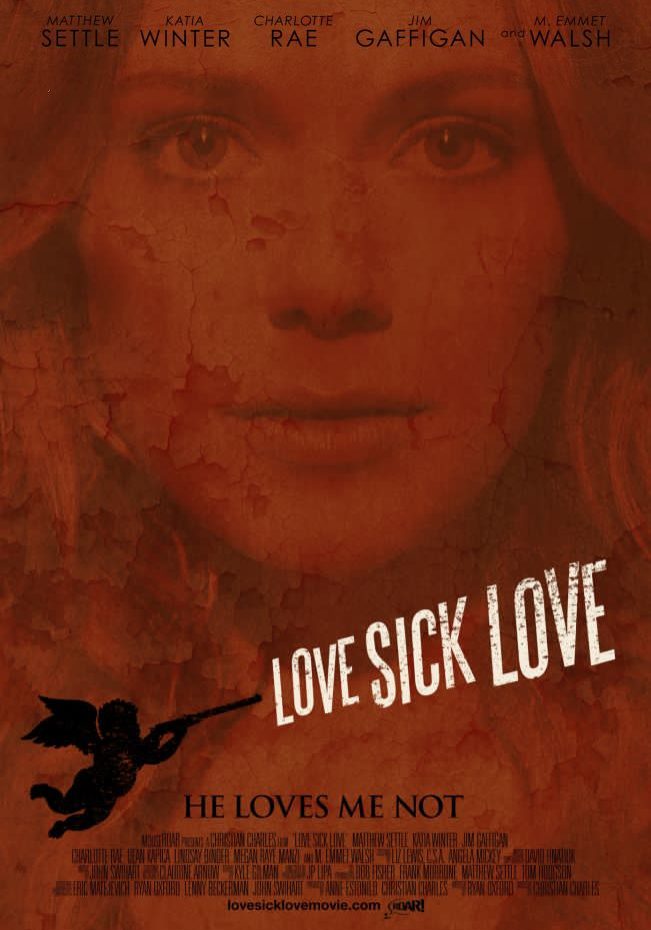An Affair to Dismember: “Sick Love” Unveiled
“We were perfect for each other. Until we met.” This chilling line from Sick Love, a 2013 foray into the madness of love-turned-obsession, sets the tone for what is a grim dance through the corrupted ballroom of affection. Directed by the relatively obscure Gerald Johnson, Sick Love presents a tangled narrative where romance and repulsion waltz in macabre unison. As the audience, we find ourselves guests at this malignant melody, unsure whether to empathize or to flee.
Chambers of Horror: Aesthetic and Suspense
Sick Love relies heavily on atmosphere and mood to ensnare its audience—a classic exploitation of our primal fears of the unknown and the unknowable within human nature. Johnson’s approach to horror is methodical; he crafts a lingering sense of doom rather than a barrage of jump scares. The real terror here is not momentary but pervasive, the slowly creeping vine rather than the rapidly striking serpent.
The cinematography is hauntingly minimalist. Stark lighting casts long shadows where the unseen and unspeakable lurk. Camera angles twist perception, distort reality, and magnify isolation, culminating in a surrealistic tableau. Although some may argue that the low-budget effects detract, they, in fact, reinforce the film’s raw and unpolished terror. Special mention must go to the scene of fragmented reflections, an artistic masterstroke symbolizing the fracturing minds of the protagonists. Here, the visual creativity supersedes budget constraints, proving innovation is not synonymous with opulence.
Sound is equally as integral to Sick Love as visuals. The absence of sound in certain scenes is deafening, while the meticulously timed staccato of stings accentuates pivotal moments of fear. It’s a case where less is more, where quietness is not equated with calm but with a breathless anticipation of horrors to come.
The Players of Pain: Acting Chops and Character Screams
In such an intimately troubling plot, performances carry the day—or rather, the dark. The cast of Sick Love performs admirably, spiraling into their characters’ descent with convincing terror and turmoil. The leads, portraying love as both a sustaining and destructive force, capture the dichotomy of passion with skilled nuance.
The film, decidedly psychological in its method, only briefly employs the grotesque, preferring instead to twist the psyche rather than the flesh. Its horrors are rooted in the authentic portrayals of obsession, loss of self, and pathological devotion, supported by strong, layered performances that explore the deepest recesses of disturbed minds.
Reflections in a Shattered Mirror: Themes and Thematics
Johnson’s film is as much a commentary on the nature of toxic relationships as it is a horror movie. It is a dissection of the façade of perfect love, revealing the potential for rot beneath the surface. Reflecting societal concerns about the illusionary aspect of love, the film probes the audience’s comprehension of trust and dependence. Herein lies its real terror: the realization that the worst monstrosities can come not from the beyond, but from the person sleeping beside you.
The film’s impact on viewers relies on their engagement with its mental anguish rather than with visceral shocks. Its true horror emanates from the suggestion that any love, no matter how sincere, has the potential to become sick, to curdle into obsession. This is a horror that lingers, insidious and thought-provoking, long after the credits roll.
Fans of psychological thrillers and slow-burn horror will find Sick Love a disturbingly rewarding experience. While it may not satiate those craving graphic displays of otherworldly terror, it holds a special allure for those drawn to the terrifying intricacies of the human heart.
As a critic, I regard Sick Love as a worthy addition to the psychological horror sub-genre, carved out with sharp precision by Gerald Johnson’s deft directorial hand. It neither upends traditions nor panders to them; rather, it nestles firmly within the parameters of psychological horror, delivering a potent dose of intimate fear.
With a warning for its intense emotional content and scenes suggestive of self-harm, Sick Love is not for the faint of heart. It is for those who welcome the chill that festers from within, a fright that festers not in the shadows but in the mirror’s reflection. As such, it comes recommended with caution, a strange tapestry of terror for the connoisseur of cerebral dread.




